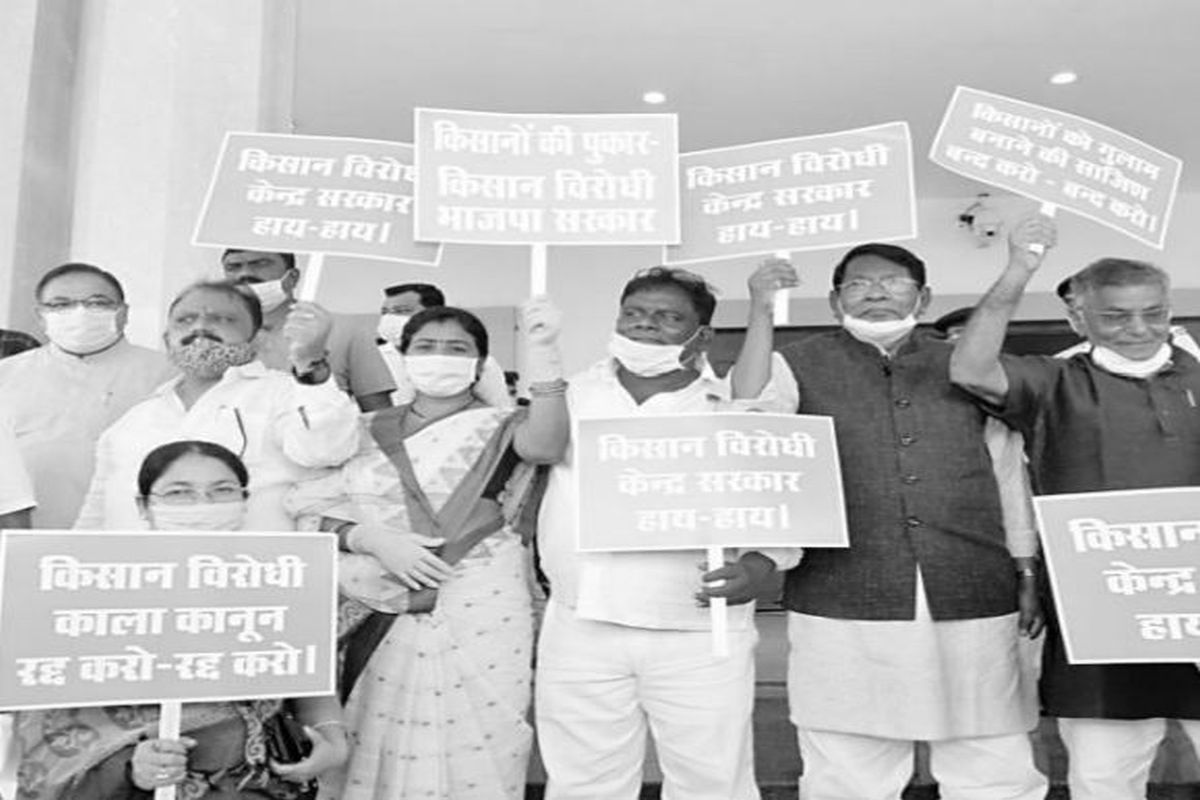Vice President urges farmers to expand their role
Vice President Jagdeep Dhankhar on Sunday called up on the farmer community to expand their role into trading and marketing of farm products and in their value adding activities.
The Economic Survey Report of 2019-20 estimates that around 70 per cent of rural households depend principally on agriculture for their livelihood, with 82 per cent of farmers being small and marginal

The other day, I was reading the book, Bringing it to the Table: On Farming and Food by Wendell Berry. The author profoundly opens a question. “Why do farmers farm, given their economic adversities on top of the many frustrations and difficulties normal to farming? And always the answer is: Love. They must do it for love.” The sheer love for farming has made agriculture the largest source of livelihoods in India.
The Economic Survey Report of 2019-20 estimates that around 70 per cent of rural households depend principally on agriculture for their livelihood, with 82 per cent of farmers being small and marginal. Agriculture sector plays a vital role in not only in national food security but also for employment, income generation and rural livelihood. But still, unfortunately, the country has witnessed the lack of suitable marketing facilities in the agricultural sector.
Advertisement
I can elucidate it very well from my experience as the Chief Minister of Uttarakhand, looking after the development of the whole state while focussing mainly on the agriculture economy of the state. Inadequate marketing facilities became one of the major bottlenecks for the well-being and security of the agriculture dependent population of Uttarakhand. Thereby, to assure and streamline the marketing possibilities for farmers such that the farmers of the land can make fanfare with new investments, I had approved the APMC Act and Contract Farming act.
Advertisement
A four-member expert team of agriculturists was set up, which toured states such as Andhra Pradesh and Karnataka to study their system of APMC. The Act enabled provisions for establishing private mandis, enablement of contract farming and constitution of a regulatory authority to avoid exploitation of farmers. Setting up of private mandis made it possible to cut out extra cess such as mandi cess, which finally, helped in reducing the final costs at both consumer and buyer end. This process initialized better gains for farmers.
I did the whole exercise as agriculture marketing was starting to behold a significant transformation in India and across the world; mainly because of the phenomena of liberalization of the trade, including agricultural commodities. This movement impinged the restructuring of the agriculture market with a more integrated and strengthened approach.
While the farming community must be empowered for global market access opportunities, while ensuring fair trade between buyers and sellers for effective prices of farmer’s produce, the farmer should also not be stifled between the forces of traders, commission agents and other associations and unions. Realising the challenges, the central government in 2017-18 had released the model APMC and contract farming Acts. After that, several steps were adopted to develop strategies for economically liberalizing farmers. The measures included the formation of the Standing Committee (2018-19) and High-Powered Committee of seven Chief Ministers in July 2019. Rigorous and comprehensive discussions were undertaken for the implementation of model Acts by states and needed changes for attracting private investment in agricultural marketing and infrastructure.
I am embarking upon the strenuous steps under by my colleague Mr Narendra Singh Tomar, who under Prime Minister Narendra Modi has bought a set of milestone reforms to ensure that farmers get remunerative prices for their produce. It is the moment that I must congratulate him for being adamant on raising the farmer’s status.
The passing of two bills namely, The Farmers’ Produce Trade and Commerce (Promotion and Facilitation) Bill, 2020 and The Farmers (Empowerment and Protection) Agreement of Price Assurance and Farm Services Bill, 2020 is truly a “watershed moment in the history of Indian agriculture.” The bills will bring economic liberation for farmers from the tight constraints they had faced through the years. It is the time that their incomes would be doubled. The prosperity and wellbeing of farmers will bring economic transformation of the country. While saying so, I condemn the ill narrative that is being built to misguide the farmers.
The Farmers’ Produce Trade and Commerce (Promotion and Facilitation) Ordinance, 2020 will facilitate both intra and inter-state trade of farmers’ produce. The bill will also condemn the market fee, cess or levy by the state governments outside APMC areas. Though on the one end, it enables contract farming, on the other hand, it will also allow a three-tier dispute settlement mechanism. The Farmers (Empowerment and Protection) Agreement of Price Assurance and Farm Services Bill, 2020 will help farmers in engaging with multiple stakeholders such as the processors, wholesalers, large retailers, exporters etc. A shield will be enabled for farmers from market unpredictability. A marketing platform with key features of transparency, accessibility and efficiency will be developed. Research and new technology will be embedded in the agriculture sector like never before, adhering to the needs of the 21st century.
I am sure that these reforms brought in by the government will lead to real inclusiveness in development, promoting the economic liberalization of farmers. The Bills will indeed hold to the quotation that “If the farmer is rich, then so is the nation.” Revamped agriculture marketing will bring in the required economic transformation in the country.
The writer is Minister for Education, Government of India.
Advertisement